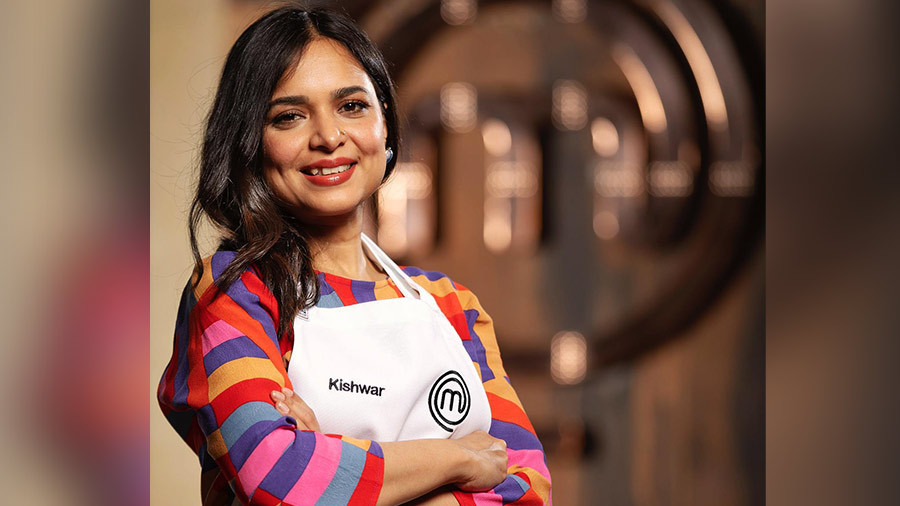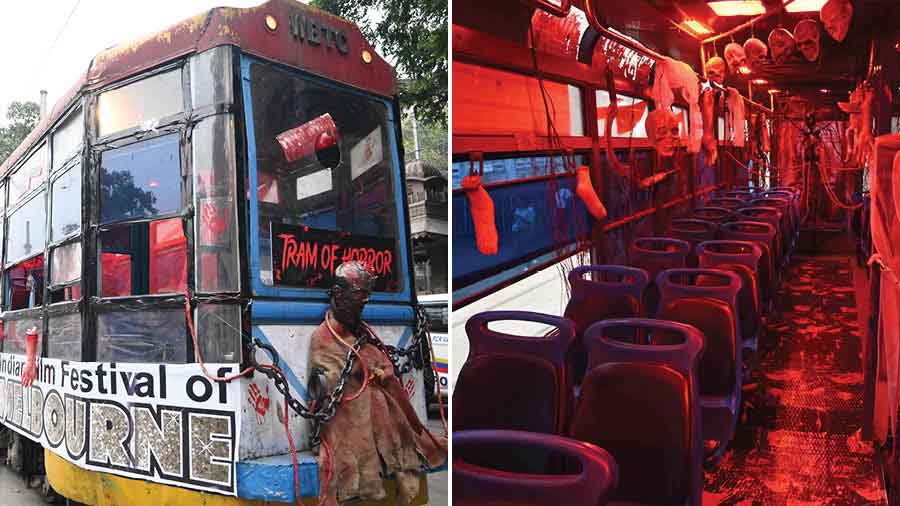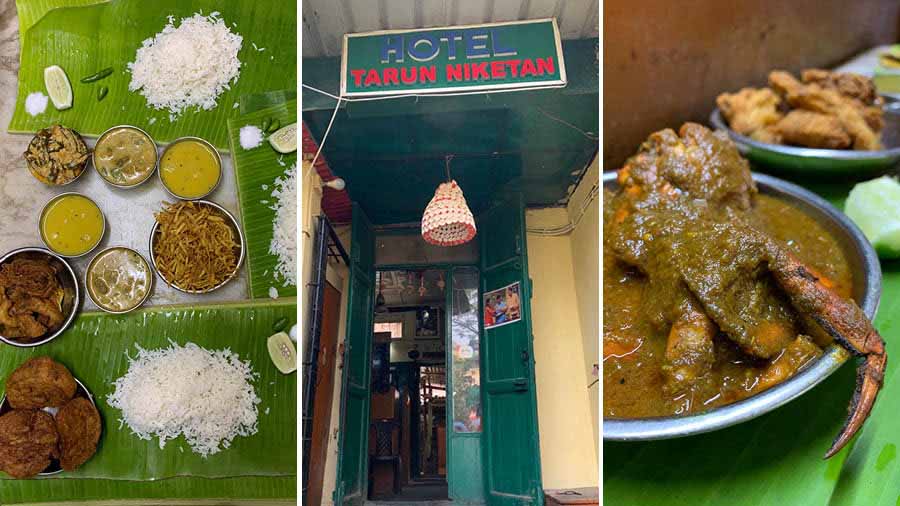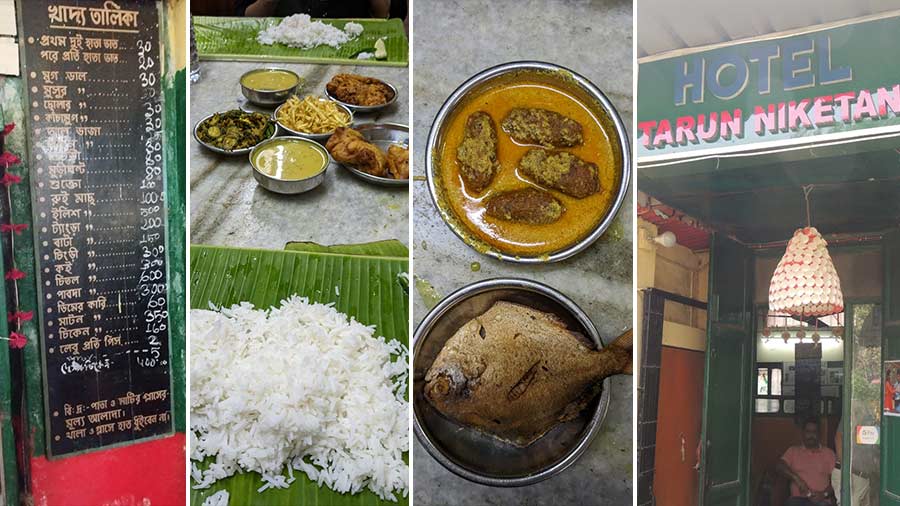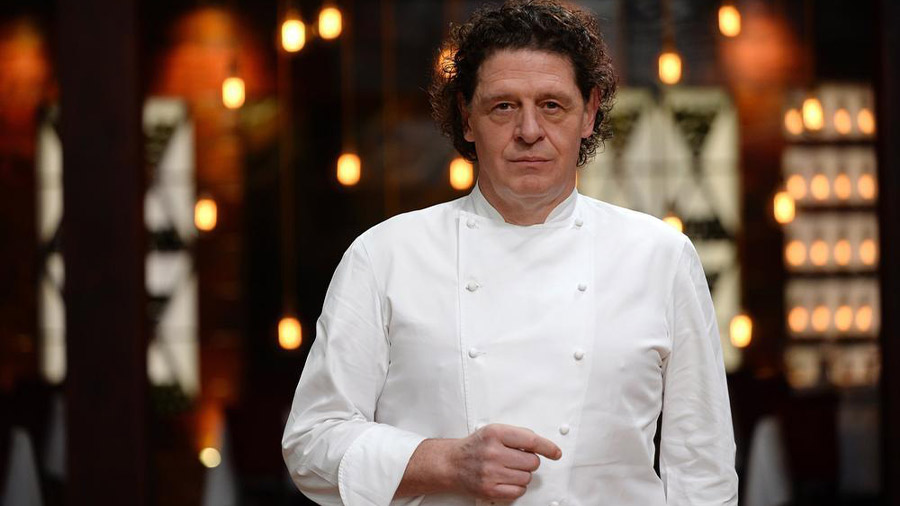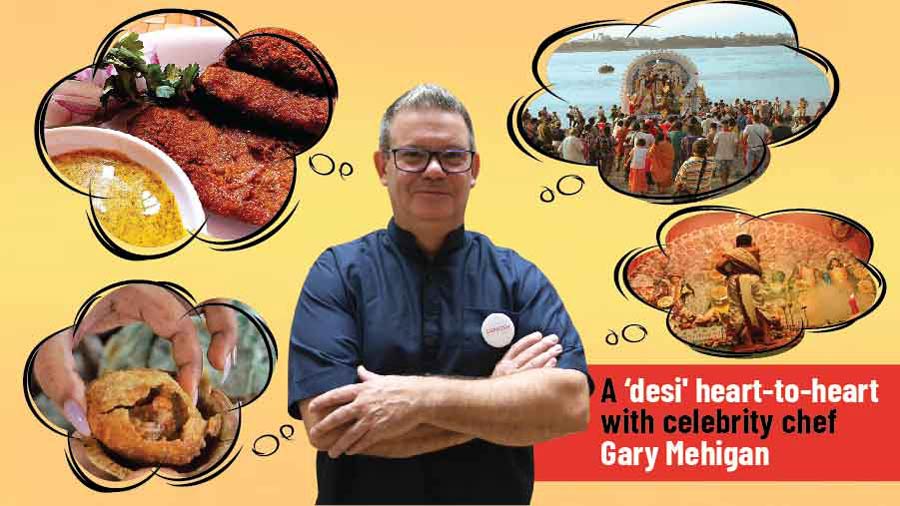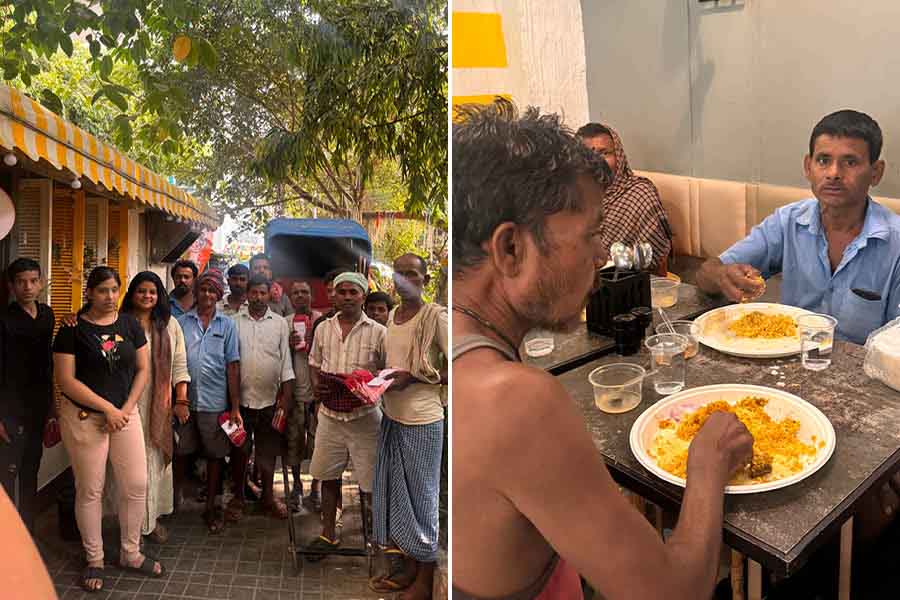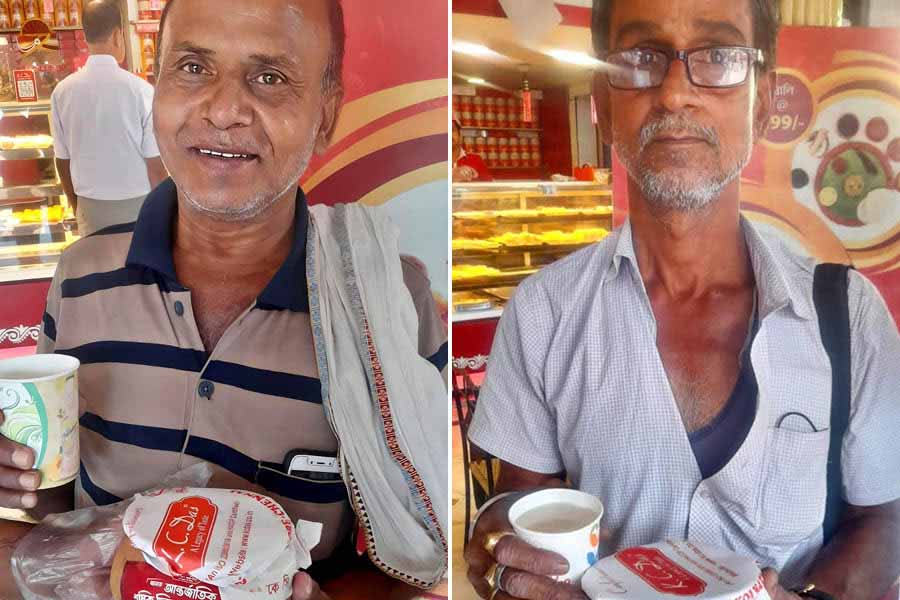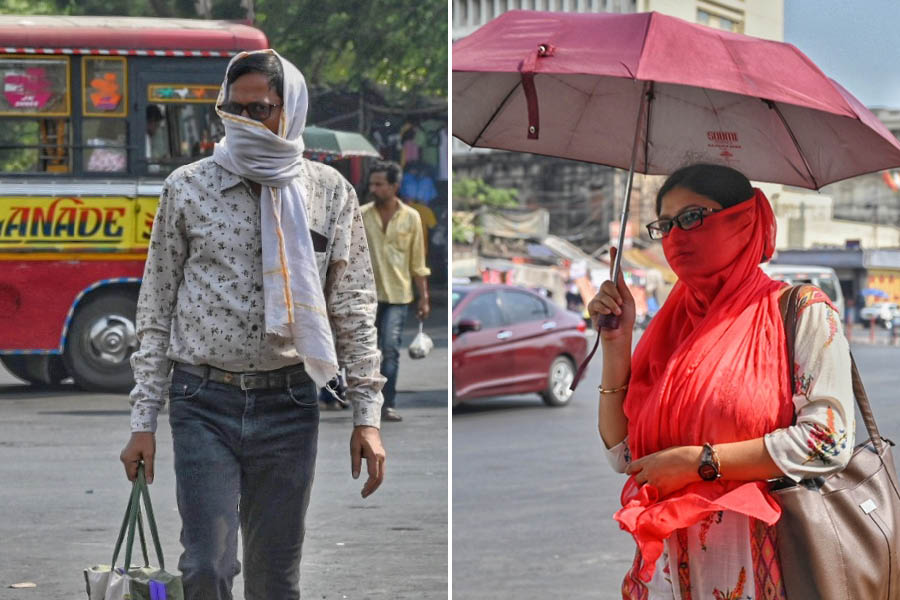She looks global, cooks beyond MasterChef and yet staunchly retains her own Bangladeshi identity. I caught up with Kishwar Chowdhury in Kolkata at a magical evening which was hosted by Oiendrila Ray Kapur at her home Kapur Villa – a birthday tribute for her illustrious father Dr Utpal Ray – to “keep him alive through music”— this time with sarod maestro Ustad Wajahat Khan performing.
The petite Kishwar was a larger-than-life standout at the MasterChef Australia Grand Finale with her panta bhaat and alu bhorta that blew the judges away and gave huge credibility to this humble home offering, with millions of eyeballs coming in its wake particularly from the South Asian community.
In an exclusive for My Kolkata, Kishwar spoke to me at 6.30 in the morning. The fact that she was showered and ready to come on the phone speaks volumes for her professionalism. She had been busy all of the previous day with KIFF where Australia was the focus country, and on the sidelines showcased the Tram of Horrors as several spine-chilling horror films from that country were to be shown. And remember Melbourne where she comes from has its regular service of trams, just like we love our 150-year-old trundle of trams.
But coming back to her masterly MasterChef miracle, I asked Kishwar why she took this huge risk and did she ever think the judges could relate to the lowly panta bhaat (“Smoked rice water” as she called it) and its accompaniments. She was very clear that it was it was never being apologetic about putting her best foot forward without hesitation. She gave the dish a twist and it surely changed the way people evaluate their food. It had to do with the strongest version. In this case, there was the onion salsa, the blackened oily fish sitting confidently atop the alu bhorta, and the sardines crisscrossed on a platter by the side, marinated with white soya, ginger, cumin and coriander. “This is the type of food you wouldn’t see in a restaurant anywhere,” she said confidently to the panel of judges who used adjectives like “powerful” and “one of the most delicious things I have eaten this year”. And “All the elements in the dish are perfect” when handing over the prized apron. When asked “Where have you been?” she burst into tears saying “At home”.
Home, to Kishwar is the quiet suburb of Nar Nar Goon (population a little over a thousand!) about 60 kilometres from downtown Melbourne, where visitors first set eyes on the murals done on old buildings, but where she loves her “great escape” at her farm.
Endeavours around the world
That is when this celebrity chef is not travelling the world in the elite company of a hundred Top Aussie South Asians and sharing her stories, or curating the menu for the final dinner of the Australia India Leadership Dialogue at the National Gallery, Victoria, or, most prestigious and of global import — her closing speech at the International Finance Corporation World Economic Forum meet this year, where the themes were Food Security, and Food Safety in a broad economic spectrum from Ukraine rebuilding the daunting work of its economy and infrastructure to the challenges in the Middle East and Africa.
And her appeals through her posts for the “urgent need for food, water and aid to reach over a million people who have been displaced in the past few weeks.” She went on to talk about the humanitarian catastrophe unfolding in Gaza, where before October 7, about 80% of Gaza’s over two million people relied on humanitarian aid. “Now, nearly every resident is in dire need of help. Anera (a non-profit organisation based in Washington DC) was among the first to respond and has since delivered over 2.4 million meals to Palestinian families displaced by the war.”
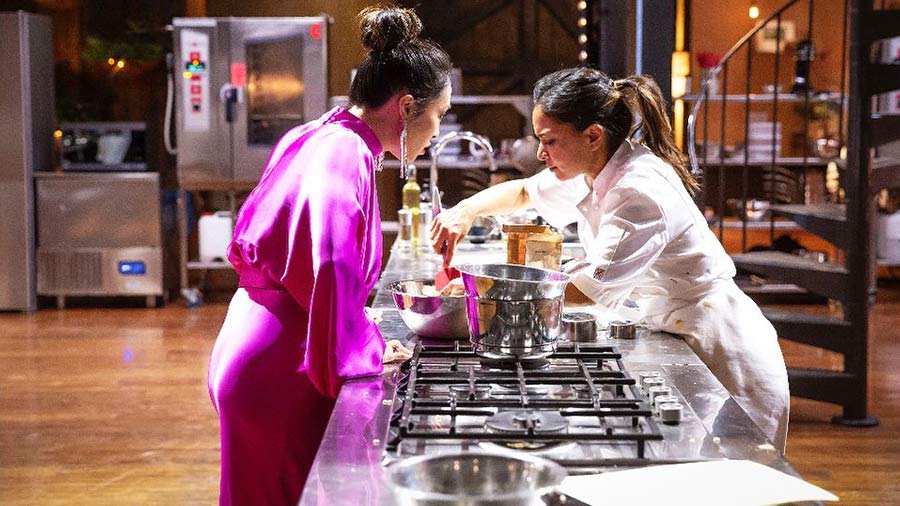
Kishwar in action in the MasterChef kitchen
The real Kishwar is the also the one who is totally grounded in her own traditions, which has come from a strong sense of familial ethnicity. Her foundations are extremely strong with her parents upholding Bangladeshi food and language and culture, which were key to her upbringing. Her nana and nani, who are from Burdwan, moved to Australia and then her mother who was the daughter of an Indian Foreign Service Officer, and spent her early childhood in Kolkata, went when she was just 19. Her father was a freedom fighter in Bangladesh, and made the move to Aussie land in 1971. There would be plenty of memories shared over dinner table and with uncles and aunts being around, the sense of community of holding on to Bangla customs has been a big part of living abroad, including being taught to prepare Bengali cuisine from an early age.
'We bring a lot of shame to our culture'
When I asked what her global mission was — to spread the message of Bangladeshi cuisine or much more — to unite people through breaking down walls on preconceived notions on food, Kishwar emphasised that a big part of what started her journey was the desire and need to have the next generation and her own kids take ownership of their own identity. You have to be front footed about who they are. “We bring a lot of shame to our culture. For the gen-next in Bangladesh, there is a lot of emphasis of westernisation. We should add change to our culture.” So the emphasis on roots has to be regurgitated.
Visiting her ancestral homes in West Bengal and Bangladesh, in her early years, she grew a keen interest not only in food, but in the way of life. Early mornings in the villages meant freshly extracted date juice before it fermented, and father and his troop going hunting for ducks to be cooked over wood-fired stoves. “It was like time travelling back to another era. What I’m left with is the memories of the sweet and savoury pithas of winter, the way grain and rice was harvested, milk extracted, vegetables fermented, dried and pickled, yoghurt hung and set for another batch.”
“To me, the way of life I witnessed across Bengal and Bangladesh, was a beautiful, slow, skilled and sophisticated way of living that I didnot experience when going to the markets in Melbourne with my parents. There was a beauty, even in the busy cities of Dhaka and Calcutta, where, despite the pace being faster, meals were highly considered, prepared fresh, and not leftovers or fast food options like you see in most Western nations. Lunches and dinners were several courses, whether eaten at home or packed in several towers of a tiffin.”
Her favourite Bengali delights are freshly made hot rasgulla with luchi, the nashtas of old Dhaka like haleem and nihari in the early evenings, with smokey naans and kebabs and the high tea dawats where “the women would wear muslin sarees and kashmiri shawls to drink tea with relatives over several courses of meticulously prepared sweet and savoury dishes.”
“The seasonality, the vegetables, fish and even particular dishes that were only available in that month made it all the more special and worth
the wait. One of my favourites were the tiny snow peas that grew in my grandmother's garden, the miles of yellow mustard fields planted in my father's village, collecting tiny cucumbers (kheera), and the chai we would drink in little clay pots when we took the train from Howrah station. I remember the first time my cousins told me to smash the pot outside the window after drinking the tea... as a child; I couldn't have imagined something this fun to even be legal in Australia. It was like an alternate magical universe.
‘Projecting their heritage to the world’
“I think now, being a chef and coming into this life, I try to capture those moments in my degustation menus that I curate across the world. I find that the world doesn't know this side of Bengal. What is projected globally is more often than not the story of floods, famine and poverty. This is a huge issue I find myself speaking out against, because it leads to the next generation of young Bengalis across the diasporas disassociating with their cultural identity. Because of this skewed projection of the Bengal region, I find many youngsters moving away from what is considered ‘Bengali’ rather than taking ownership and pride in projecting their heritage to the world.
“As a chef, I try to tell the story of Bengal on a plate. Of the rich history and cultural heritage of the region. But also of the very early memories that were embedded in me, from not only my dinner table in Melbourne, but all those precious memories from the time spent in Bengal and Bangladesh. Capturing the essence of a life in Bengal and being authentic to my calling, found me not only success on MasterChef Australia, but resonated with a global audience, whether or not they were from the same background.” While her father is a great cook, husband Ehtesham is quite happy doing the dishes. A rarity for a South Asian? And of her two children, the older one, Mikayle, was applying for Junior MasterChef, when he asked his mother to send in her submission. Which she did, and carried clothes which would be enough for a five-day visit, and had to stay on at the MasterChef house for a whole seven months. With no internet, phone or wallet and presumably full of intensive, gruelling, great learning, with the contestants who are put up in serviced apartments, studying culinary techniques, in their spare time, tuning into methods of using different ingredients and making up their own recipes.
'I have a very proud Bengali DNA running through me'
![‘Because of [the] skewed projection of the Bengal region, I find many youngsters moving away from what is considered ‘Bengali’ rather than taking ownership and pride in projecting their heritage to the world,’ says Kishwar](https://assets.telegraphindia.com/telegraph/2023/Dec/1702206322_lead-3.jpg)
‘Because of [the] skewed projection of the Bengal region, I find many youngsters moving away from what is considered ‘Bengali’ rather than taking ownership and pride in projecting their heritage to the world,’ says Kishwar
Having lived in three different continents, Kishwar’s knowledge of mixing spices and understanding ingredients from across the globe, gave her an edge in the MasterChef kitchen, with the icing on the cake — pardon — the gur oozing from the jolbhora coming for her from the winning encomiums.
“I have a very proud Bengali DNA running through me. And I think consolidating our Bengali identity through cuisine is vital to not only to make our cuisine globally identifiable but also to pass down to the next generation. Like my savoury dishes, I love reimagining heritage Bengali desserts.”
Like the betel leaf ice cream served on paan pata, incorporating fennel and cardamom and a sprinkle of mukhwas on top. One of the judges was seen eating the whole dessert in one mouthful including the betel leaf.
Kolkata was wholly immersive for Kishwar — never a dull moment. She did not want to try any fancy restaurants but opted for a pice hotel Tarun Niketan — a 108-year-old eatery off Rashbehari Avenue, where she squished through wet lanes and tried the seafood despite being allergic to prawns and crab, demolishing it sportingly with an antihistamine afterwards.
In contrast, is the visit to the Makaibari tea estate, where the most expensive teas Silver Tips Imperial is produced.
And Monday is when she will be leading a conversation with Bachi Karkaria and KOI founder Kounteya Sinha with 60 select women present to interact with “The Biggest New Global Sensation on Culinary Art” at the Taj Terrace Garden. “A deep dive into food and identity,” as Kishwar put it.
Phew! Never a chillout moment.
Staying locally close to roots, going global with the application of her fine skills, waiting to finish writing her cookbook, working in collaboration with the top hotels, curating menus for important events, Ted talks, and continuing to keep Bengali cuisine at the top of mind recall across the countries while retaining the Australian connection — will Kishwar get her quiet time at Nar Nar Goon, her own Aussie homestead to write some poetry which she is adept at, beyond cooking? We will see.


